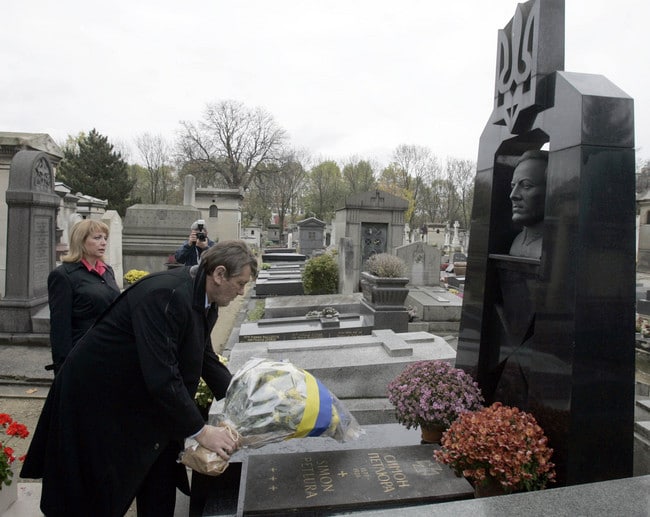Nazism in Ukraine – Sociologist Massimo Introvigne has just published, in his already popular online magazine BitterWinter.ORG, a series of articles with in-depth research to separate facts from fiction, about the propaganda that is trying to portray Ukraine as Nazified country.
See the excellent series of 7 articles published by Massimo Introvigne: Nazism in Ukraine – Separating Facts from Fiction.
article 1 – Ukrainian Nationalism and Antisemitism
A main argument of Russian propaganda in the current Ukrainian war is that Ukraine is under the decisive influence of “Nazis” and needs to be “denazified.” The President of Ukraine, Volodymyr Zelenskyy, is Jewish, which makes any claims that he heads a “Nazi government” paradoxical. However, the Russians insist that Nazis are a significant part of those fighting against pro-Russian separatists in the Donbass, and that Ukraine keeps lionizing those who collaborated with the Nazis during World War II. The Ukrainians counter that there are quite a few Nazis fighting “for” the pro-Russian Donbass separatists rather than against them. Read the full article by clicking on the title above.
article 2, Nazi Germany and Stepan Bandera
The main argument used by Russians to prove that present-day Ukrainians have Nazi sympathies are the honors officially tributed to nationalist leader Stepan Bandera (1909–1959). Putin’s Russia has inherited from the Soviets the use of “Banderist” as synonym for “Ukrainian Nazi.” The story, however, is somewhat more complicated. Read the full article by clicking on the title above.
article 3 – A Nazi Resurgence in Independent Ukraine
Ukraine became independent in 1991. By then, there were few who had been involved in significant ways in the Nazi German occupation of Ukraine who were still alive. Many had been executed in Soviet times; others had escaped abroad or died of old age. However, small neo-Nazi groups emerged, as they did in most European countries, among young people who had never encountered German Nazism. Read the full article by clicking on the title above.
article 4 – Eduard Kovalenko: A Pseudo-nazism Created by the Russians
There is a propaganda war around neo-Nazism in Ukraine, and it is a war where intelligence services play their usual roles. Not many outside Ukraine are familiar with the story of Eduard Kovalenko, but it is a perfect illustration of how Russian disinformation works on this issue. Read the full article by clicking on the title above
article 5 – Enter the Azov Battalion
Those who have heard of Nazis in Ukraine have certainly heard of the Azov Battalion, which is presented often by Russian and pro-Russian propaganda as the smoking gun proving that the Ukrainian government promotes Nazism. Read the full article by clicking on the title above
article 6 – Pro-Russian Nazi Fighters in the Ukrainian War
Putin has repeatedly indicated that “denazification” of Ukraine is one of the aims of its war. One can ask, however, whether, before denazifying other countries, he should not put his own house in order. Neo-Nazism is not a peculiar Ukrainian phenomenon. It exists in all European countries, and Russia is no exception. Read the full article by clicking on the title above
article 7 – Russian Propaganda is Just Propaganda
It is now time to draw some conclusions from the six articles I have devoted to the question of Nazism in Ukraine. They show, I believe, that Russian propaganda is just propaganda, and war propaganda is rarely informative. Read the full article by clicking on the title above









